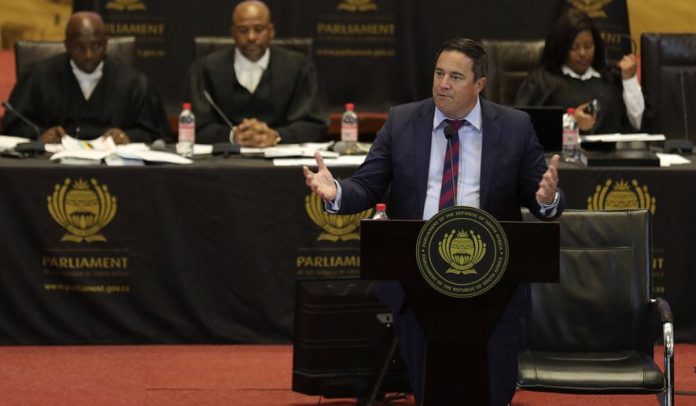In an effort to break the African National Congress’ (ANC) three-decade grip on power, six opposition parties in South Africa have announced their intention to explore the possibility of forming an alliance for the upcoming national election in 2024.
Dubbed the “Moonshot Pact,” the idea of an opposition alliance has gained momentum, prompting the six parties to schedule meetings on August 16 and 17 to deliberate on the formation of a united opposition.
John Steenhuisen, leader of the Democratic Alliance, the second-largest party in Parliament, expressed the parties’ shared belief that a united front offered the best opportunity to unseat the ANC and establish an alternative government capable of rescuing South Africa.
Under the proposal, the parties would not merge into a single entity but rather establish a governing coalition if they collectively secure a majority in the election.
However, experts caution that achieving such a majority remains a long shot despite the perceived shortcomings of the ANC.
Since Nelson Mandela’s historic victory in the first all-race elections that marked the end of apartheid in 1994, the ANC has dominated South African politics, winning every national election.
However, the party has faced criticism for its failure to deliver essential services to many citizens and has been plagued by corruption scandals, including allegations of graft during President Jacob Zuma’s administration from 2009 to 2018.
The ANC is also widely held responsible for the ongoing national electricity crisis, which has resulted in daily rolling blackouts in Africa’s most developed economy.
The ANC’s popularity has waned, as evidenced by its vote share falling below 50% in local elections two years ago.
Nonetheless, Steenhuisen acknowledged that the combined vote share of the six opposition parties in the 2021 local elections amounted to only approximately 35%.
Meanwhile, the alliance discussions exclude the far-left Economic Freedom Fighters party, currently the third-largest bloc in Parliament, following the ANC and the Democratic Alliance.
In the 2019 national election, the ANC secured 230 seats in the 400-seat Parliament, with the Democratic Alliance and the Economic Freedom Fighters party obtaining 84 and 44 seats, respectively. Seat allocation is based on the parties’ proportional representation in the total vote.












